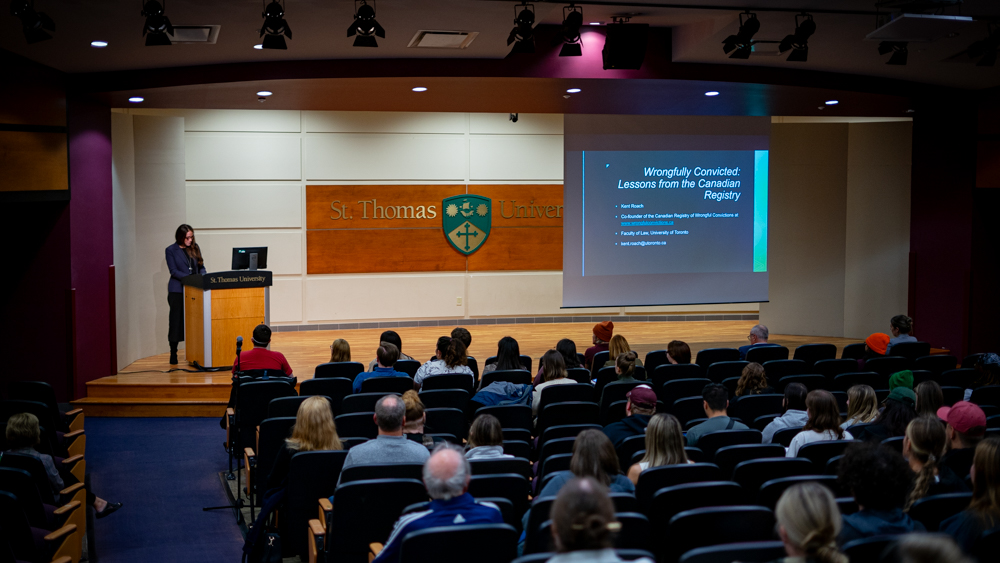

Kent Roach spoke about wrongful convictions for this year’s Endowed Chair in Criminology and Criminal Justice at Kinsella Auditorium on Oct. 10.
Roach is a law professor at the University of Toronto and has taught a course on wrongful convictions for over 20 years.
He co-founded the Canadian Registry of Wrongful Convictions database, which includes 87 publicly documented cases of exonerated wrongful convictions.
Roach was clear that the database doesn’t prove innocence because neither does the criminal justice system. The database proves whether there was guilt beyond reasonable doubt.
“We’re only measuring errors that the criminal justice system itself admits that it has made. We make absolutely no claim that we’ve discovered them all.”
Roach believes it is “just the tip of the iceberg” when it comes to cases where the criminal justice system has failed.
The database is not designed to search for cases but rather record the ones that have been successfully overturned. A case that overturns a person’s guilt through the court of appeal or a new trial is recorded in the database.
“We believe that there is a public value of recording mistakes that the justice system has made.”
The registry reveals broader patterns across all the wrongful convictions. Roach said that it can show cases of flawed forensics or flawed eyewitness testimony and in some cases, multiple system failures.

Guilty pleas are a large contributor to wrongful convictions. Eighteen of the registry’s 87 cases are guilty pleas. Roach said that innocent people plead guilty as it can be the most rational decision.
“People make rational decisions despite innocence despite having a defense to what they’re charged.”
He cited the case of Dinesh Kumar, who pleaded guilty to manslaughter in the death of his one-year-old son. A murder charge would have meant life in prison and mandatory deportation for Kumar. His manslaughter plea gave him a 90-day sentence to be served on the weekends.
“Mr. Kumar made a completely rational decision, but it was a decision that hurt him deeply.”
Despite guilty pleas, Roach said that eliminating them would collapse the efficiency of the criminal justice system due to limited time and resources.
“The criminal justice system would break down if there were not guilty pleas and the oil that makes that go is a plea or a sentence discount.”
Roach also explained imagined crimes, which is a wrongful conviction when no crime occurred. Imagined crimes amount for a third of the wrongful convictions in the Canadian and American registries.
“We often imagine crimes that were never committed. This is a form of thinking dirty, suspect suspicions and stereotypes blossom into wrongful convictions.”
As far as a solution, Roach said that Bill C-40, an act to amend the Criminal Code currently in Canadian parliament, could help. Once your appeal attempts are exhausted, you must apply to the Minister of Justice for further appeal. This bill would replace the minister with a miscarriage of justice review commission.
Roach calls on all justice system participants to be willing to admit mistakes, their own limitations and commit to the truth.
“We have to have an underlying commitment to truth — plea bargains and guilty pleas often encourage and compromise the truth.”
